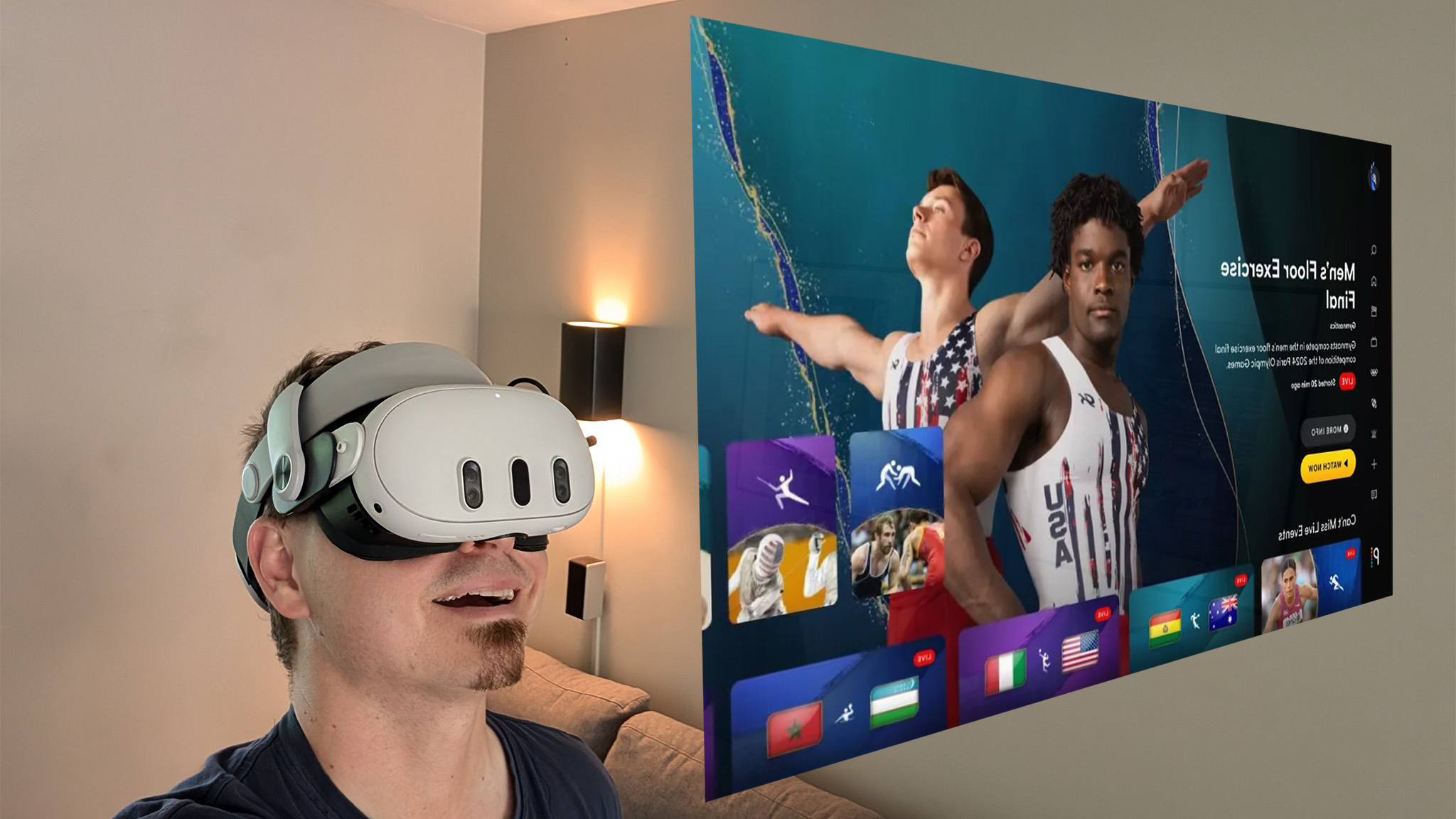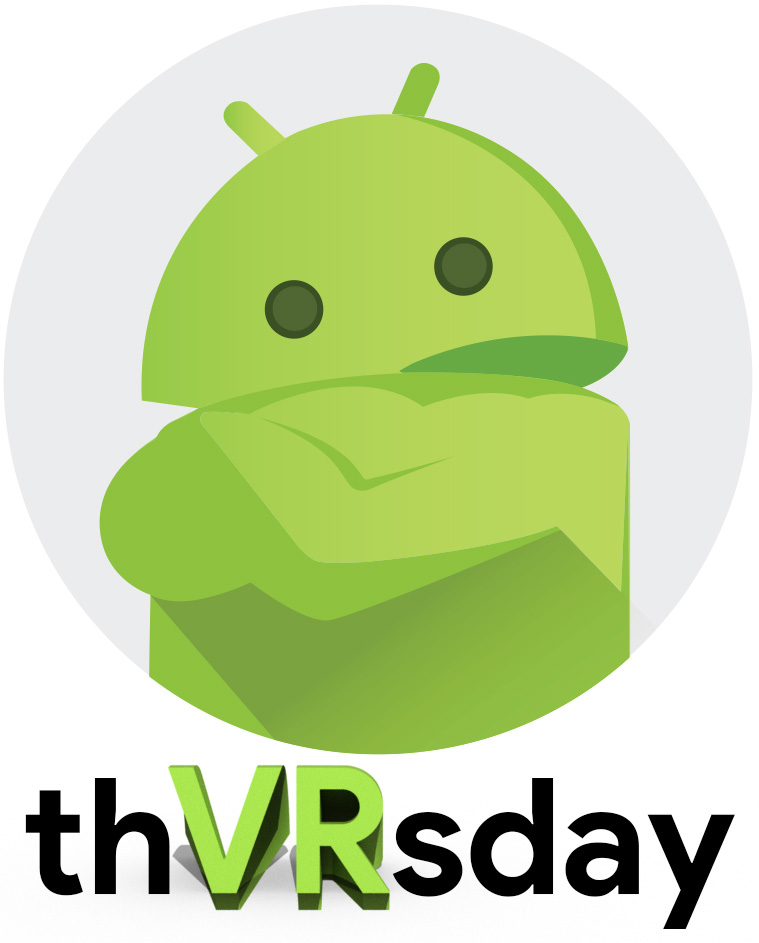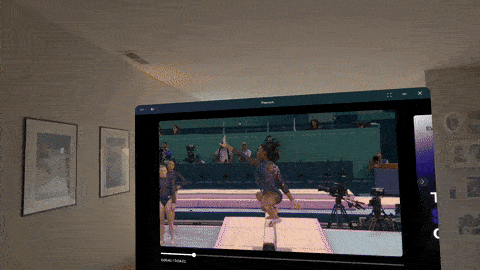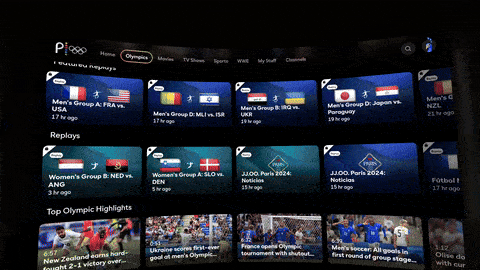
My family and I love the Olympics. We tune in every two years — no matter if it's Summer or Winter — and binge as much content as possible in the short two weeks it's available. While streaming the Olympics has been notoriously difficult in the past, NBC seems to have finally gotten its act together and is providing significantly better coverage this time around.

In his weekly column, Android Central Senior Content Producer Nick Sutrich delves into all things VR, from new hardware to new games, upcoming technologies, and so much more.
One of those new ways to watch is by using the Peacock app for Quest which works marvelously on the Meta Quest 3 with its high-quality mixed reality cameras. Just like Netflix on Quest, the Peacock app lets you watch videos in several ways, from a resizable window you can bring with you like a tablet, to a giant movie theater screen for full immersion.
For me, watching the Olympics this way can make the most sense for two reasons: you want to watch something the rest of your house doesn't — there are over 32 different sports in the Summer 2024 Olympics — or when you're walking around the house, doing chores, or are otherwise occupied and need to take the video with you.
The Summer 2024 Olympics runs from July 26 to August 11 and I was able to see a handful of preliminary events through the Peacock app on my Quest before the opening ceremonies aired. The opening ceremonies began at 1:30 PM Eastern Time on Friday, July 26, 2024.
A more personal Olympics

To watch the Olympics in VR, you'll need the Peacock app as well as a Peacock Premium or Premium Plus plan. A Premium plan is $7.99 per month and includes ads on some content, while Premium Plus is $13.99 and removes most ads. You can pay per year if you really enjoy the service, which will bring the cost down to as low as $6.67 "per month," if you budget it out that way.
There's no trial plan for Peacock but TomsGuide has some ways you can get Peacock for free with other paid services. Once you've got your subscription set, just download the Peacock app on the Meta Horizon Store and sign in.
The UI looks and works identically to how it is on the best tablets, smartphones, or probably even your smart TV. That means scrolling through rows of thumbnail icons, swapping categories via tabs at the top, etc. I found using hand tracking on Quest was the perfect way to chill and watch what I wanted as it felt just like using a giant, floating tablet.
This "grab and go" style of watching is personally the most useful for me, as it lets me move around the house without missing a moment.
By default, the Peacock app opens up alongside any other windows you have open on Quest. Thanks to the new Meta Quest UI, you can resize this window to your liking, snap it alongside up to two other apps or other windows, or even grab it and move it anywhere you want to float in 3D space.
Floating windows will stay in place as if you've suspended gravity in real life, so getting up and walking around won't affect the placement. If you want to take it with you, just grab the little white bar at the bottom of the window and bring it with you just as you might grab and hold a tablet.

This "grab and go" style of watching is personally the most useful for me, as it lets me move around the house without missing a moment. I found that if I start the same event from my phone and cast it to the TV, I can catch what's happening at the same as the rest of my family without needing to stop what I'm doing.
I've seen people do this with phones or other devices but those are awkward because you always have to find a place to prop the phone up or place it somewhere that it can be seen. Plus, since those screens are far smaller than anything you'd have in mixed reality on a Quest 3, it's just less convenient than watching on a Quest.
Then there's also the neck pain factor that comes into play when craning your neck down at a smartphone or tablet screen for a long time. Since I can move the window anywhere I want in mixed reality — that means floating it just outside my normal field of view — glancing over at the screen doesn't end with me needing to go to the chiropractor later.

The theater mode isn't something I imagine I'll find myself using very often but I can see the appeal for some folks. Tapping that four arrows icon on the top of the Peacock app will launch theater mode with controls that are identical to watching Netflix or YouTube via a browser.
By default, the screen expands to be several hundred inches large and sits back from your face by several feet. This makes it feel like you have a wall-sized TV a few feet away from you, which is mind blowing to watch. It's also crystal clear and looks as good as any TV, in my estimation.
You can "dim the lights" in your room via the control panel that sits at the bottom of the virtual display, too making it easy to shut out most of the real world and just enjoy your favorite sport. There's also a setting for making the display curved or flat, as I know everyone seems to have a different opinion on which type of display is best.
Watching something as grand as the Olympics in a giant virtual home theater is incredible, but immersive 180-degree or 360-degree video would have made this even better.
But the experience isn't perfect and it doesn't completely live up to some of my expectations. Being able to take the coverage with me around the house is brilliant, and watching that same coverage in a personal movie theater is unforgettable, but if I'm doing this in VR I want to feel like I'm really there.
Having some sort of immersive coverage would have been amazing. Even if it's not 360-degree video, some kind of 180-degree footage would have been a brilliant way to get people to give Peacock in VR a try and experience something entirely new rather than a more convenient or personal version of an existing experience.
This, of course, highlights the difficulty of the "chicken & egg" scenario where the cost of producing 180 or 360-degree videos like this might not be financially worth it now but the existence of these experiences would likely pay off in the future as new buyers are spurred on by unique new content.
Until then, though, I'll just enjoy my favorite Olympic sports while working or doing chores over the next two weeks from the comfort of my headset. There's nothing like having that TV you can take anywhere with you!
Play games, watch movies and TV, or even work from VR with clear mixed reality vision that makes it easy to do what you want without having to take the headset off.







